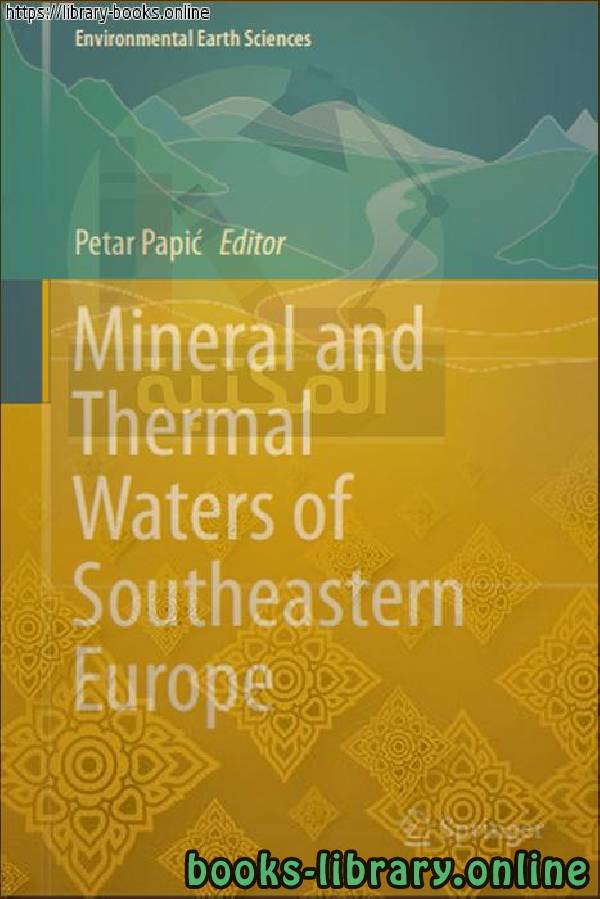❞Petar Papić❝ المؤلِّف - المكتبة
- ❞Petar Papić❝ المؤلِّف - المكتبة
█ حصرياً جميع الاقتباسات من أعمال المؤلِّف ❞ Petar Papić ❝ أقوال فقرات هامة مراجعات 2025 ❰ له مجموعة الإنجازات والمؤلفات أبرزها Mineral and Thermal Waters of Southeastern Europe ❱
إنضم الآن وتصفح بدون إعلانات
له مجموعة من الإنجازات والمؤلفات أبرزها ❞ Mineral and Thermal Waters of Southeastern Europe ❝
#7K
0 مشاهدة هذا اليوم#21K
9 مشاهدة هذا الشهر#25K
3K إجمالي المشاهدات نبذه عن الكتاب: Geology of South-Eastern Europe Vladica Cvetkovic, Dejan Prelević and Stefan Schmid Abstract The region of South-Eastern Europe (SEE) occupies an important segment of the Alpine–Himalayan collisional orogenic belt and consists of several Phanerozoic mobile belts. The SEE region inherits its geology from the evolution of the Vardar Tethys ocean, which existed in-between the Eurasian (Europe) and Gondwana (Africa) continental plates and which relicts presently occur along the Vardar–Tethyan mega-suture. This synthesis, therefore, consists of (1) pre-, (2) synand (3) post-Vardar–Tethyan geology of SEE. Pre-Vardar–Tethyan geology on the European side is reflected by geological units formed from Precambrian to Mesozoic times and include the Moesian platform, the Dacia mega-unit and the Rhodopes. On the Gondwana side, it is represented by the External Dinarides, the Dalmatian-Ionian Zone and Stable Adria (Apulia), all principally formed from Paleozoic to Mesozoic times. The Syn-Vardar–Tethyan units encompass the bulk of the geological framework of SEE. They are a physical record of the former existence of the Mesozoic oceanic lithosphere, being represented dominantly by ophiolites and trench/accretionary wedge (mélange) assemblages, which originated and were reworked during the life-span of the Vardar Tethys. The Post-Vardar– Tethyan geological evolution refers to the time period from the final closure of the Vardar Tethys until present. It comprises all rocks that stratigraphically overlie the Vardar–Tethyan mega-suture and seal the contacts between the mega-suture and the surrounding geological units. This is the time characterized by rapid extension coupled with exhumation of the lower crustal material, high heat flow, both intrusive and extrusive magmatism and considerable lithosphere thinning.
عدد المشاهدات
3716
عدد الصفحات
174
نماذج من أعمال Petar Papić:


